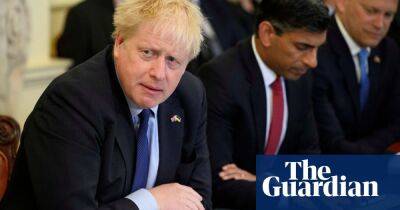It’s a top Tory ploy: so why hasn’t Rishi Sunak cut stamp duty?
Boris Johnson’s government, out of ideas and beyond its sell-by date, is stuck in a rut. With the economy heading south as inflation ravages household incomes, there is a sense among Tory MPs that the chancellor should have something more up his sleeve.
Yet all the Treasury can offer them is a looped tape of Rishi Sunak’s 2021 budget speech, when he laid out spending plans that were immediately submerged by the cutbacks and tax rises his fiscal conservatism demanded.
Sunak could point to the£15bn of extra funds he announced little more than a week ago as proof of his commitment to driving the economy forward. It certainly cheered most Tory MPs, who were relieved by the bulging package of discounts and subsidies.
But elation quickly turned to disappointment when it dawned on backbenchers that the £15bn was just a sticking plaster, albeit a very large one, and not a policy to trigger growth and offer hope.
Usually, when the Treasury is confronted by a deteriorating economy, it returns to its tried and trusted playbook, which consists almost entirely of handing the housing market a large tax break in the expectation that huge amounts of consumer spending will begin to flow, and that private sector companies will then regain their confidence and make investment decisions.
Sunak used to be able to rely on the Bank of England to play its part by doing what it has always done since 2008: making borrowing cheaper. On many occasions Threadneedle Street has argued that cutting interest rates and printing banknotes aids businesses and boosts investment. But this is the UK we are talking about, so most people will know, and Treasury officials most certainly do, the vast bulk of borrowed money created in the last decade has not been
Read more on theguardian.com
















